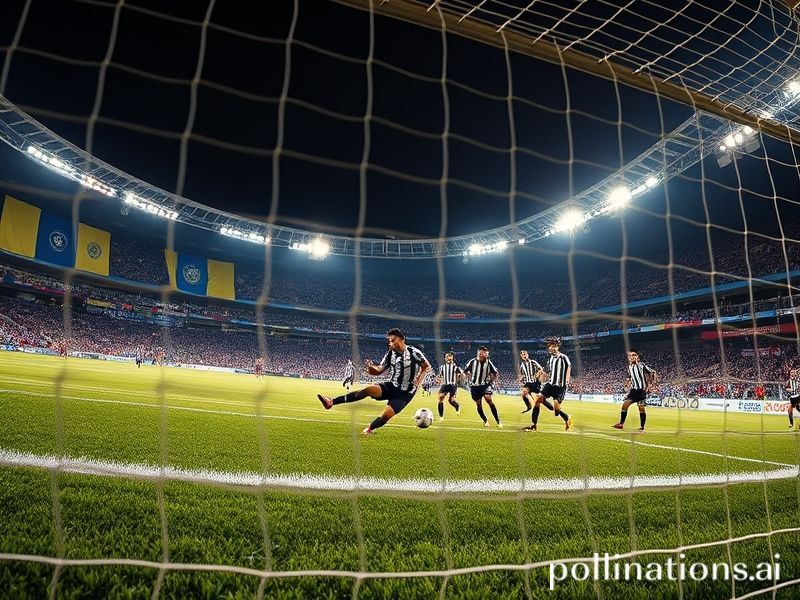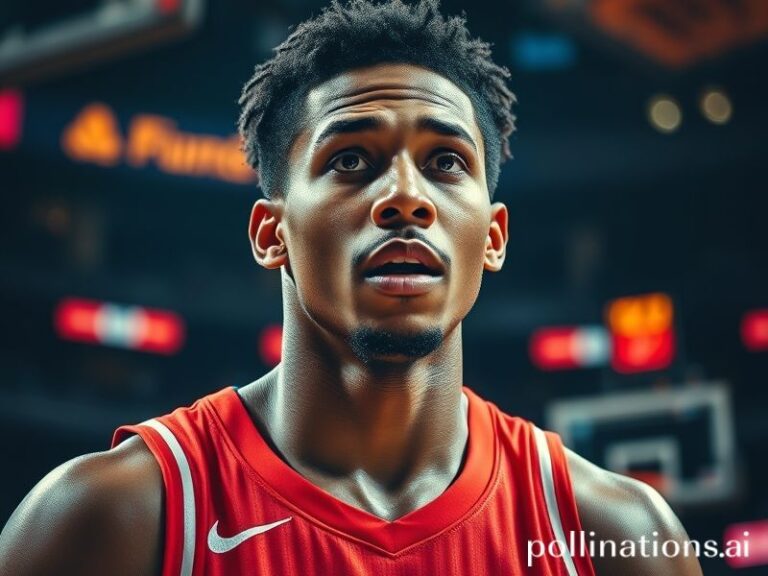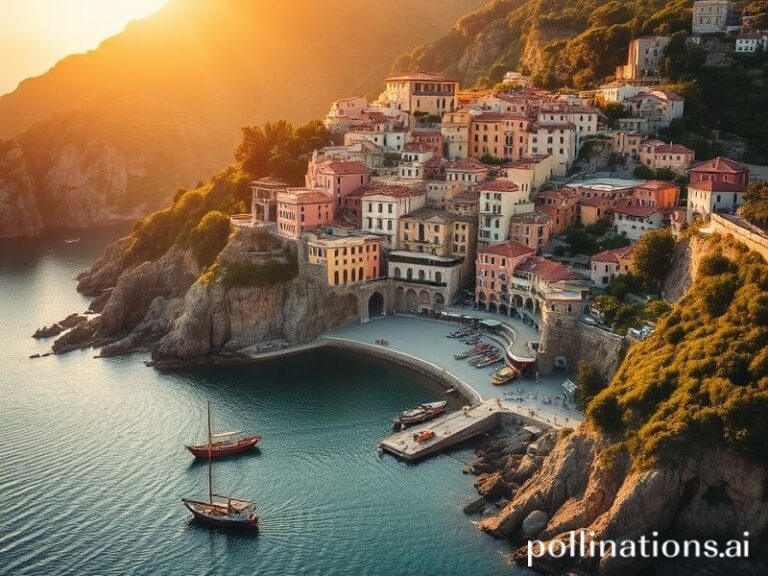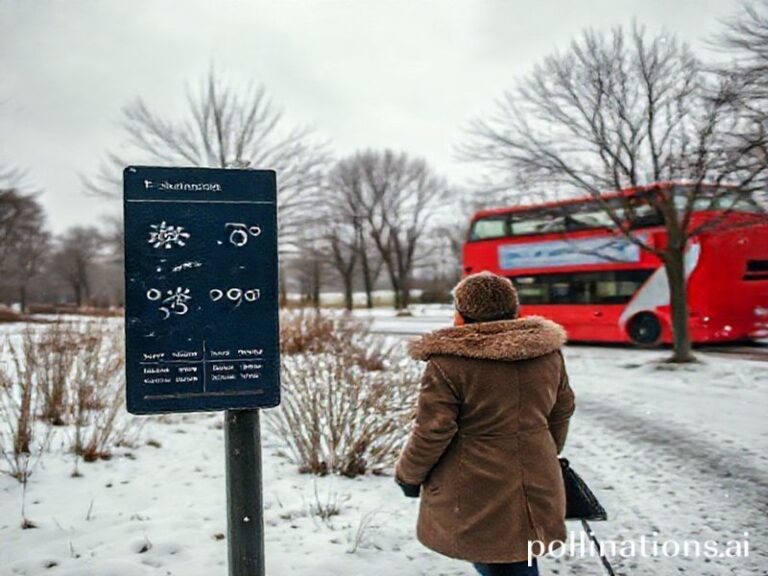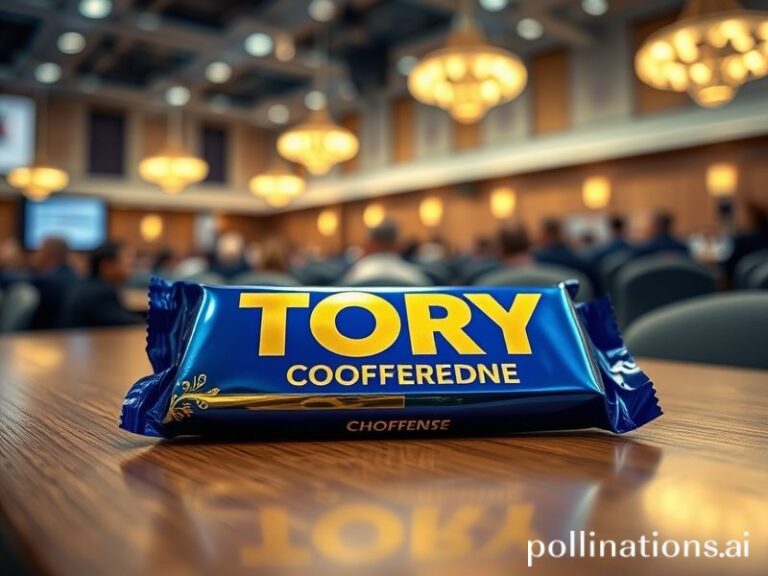Grêmio vs Botafogo: Brazil’s Mid-Table Therapy Session Goes Global
Grêmio vs Botafogo: When Porto Alegre Meets Rio in the World’s Most Expensive Mid-Table Therapy Session
By Diego “Still Waiting for VAR to Fix My Life” Molina
RIO DE JANEIRO—Somewhere between the tenth replay of a dubious offside and the thirtieth drone shot of floodlights, the planet’s attention briefly flickered to Brazil this weekend. Grêmio and Botafogo—two clubs whose combined silverware outweighs the GDP of several island nations—played out a 1-1 draw that was, depending on your blood-alcohol level, either a tactical masterclass or the world’s most expensively choreographed shrug.
To the uninitiated, the fixture looked like any other mid-season Brasileirão tilt: 22 millionaires jogging in geometric patterns while 50,000 people screamed tactical advice they Googled during half-time. Yet for the global audience—streaming from Lagos internet cafés to Scandinavian betting dens—the match carried the faint aroma of geopolitical allegory. Here were two clubs wrestling not just for three points, but for the right to claim they still matter in a world where Saudi Arabia buys entire leagues the way the rest of us buy Spotify Premium.
Grêmio, hailing from Brazil’s southernmost metropolis, arrived draped in the symbolism of industrial decline. Porto Alegre, once the proud forge of the country’s steel and soy dreams, now exports chiefly nostalgia and anxiety. Each Grêmio attack is therefore a delicate act of economic re-branding: “Look, we can still produce something that doesn’t end up in a Chinese customs warehouse.” Botafogo, meanwhile, sauntered up from Rio’s gentrifying port district, backed by a venture-capital firm whose name sounds like a crypto wallet recovery phrase. The club’s recent cash infusion has turned it into South America’s most lavish social experiment: What happens when you give a historically chaotic team Silicon Valley money and tell them to stay humble?
The game itself unfolded like a TED Talk given by a hangover. Grêmio pressed high, Botafogo passed prettier, and both goalkeepers performed interpretive dance routines whenever a cross came near. The deadlock broke when Grêmio’s 19-year-old winger—valued at roughly three Moldovan budgets—curled a shot that would have made Messi update his LinkedIn. Botafogo equalized via a penalty so soft it could have been marketed as a sleep app. Cue 60,000 phones lighting up in unison, each screen a tiny confession booth for match-fixing conspiracy theorists.
Internationally, the draw resonated in unexpected corners. In the European transfer market, scouts lowered their binoculars and sighed: Brazilian teenagers now cost the same as medium-sized Baltic navies. Over in Asia, betting syndicates recalibrated algorithms that already treat the Brazilian second division like a 24-hour laundromat for dirty cash. And in North American boardrooms, MLS executives took notes on how to monetize angst: Charge premium prices for existential dread, wrap it in a retro jersey, call it “authentic football culture.”
The broader significance? In an era when nation-states weaponize sports for soft-power Viagra, Grêmio vs Botafogo reminded us that clubs remain gloriously resistant to grand narratives. Both teams will finish the season somewhere between fourth and “conference league purgatory,” proving that entropy—not geopolitics—still rules the beautiful game. Meanwhile, fans continue their weekly pilgrimage, trading wages for 90 minutes of communal delusion. It’s cheaper than therapy, and the beer has better branding.
As the final whistle blew, fireworks blossomed over the Guaíba River and Botafogo’s private jet idled on the tarmac—ready to whisk executives back to PowerPoint presentations about “leveraging synergies.” Somewhere in the mixed zone, a Grêmio defender told reporters, “We go again next Sunday.” Translation: We’ll all be here, wallets lighter, livers heavier, pretending the table matters until the world ends or the streaming rights expire—whichever comes first.
And that, dear reader, is the most international truth of all: Whether you’re in Lagos, Liechtenstein, or a Porto Alegre churrasco pit, football still sells the same product—hope by the kilo, cynicism included at no extra charge.

